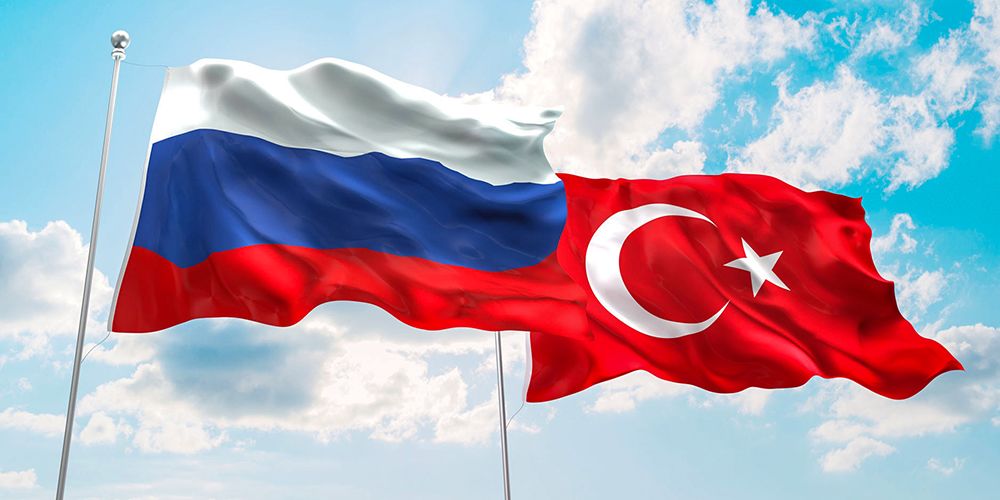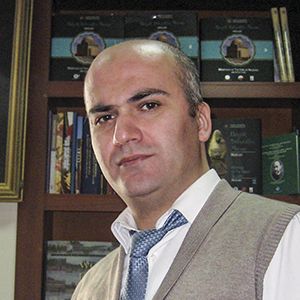Search

Publications
New role of Ankara in the global politics through the lens of Russian-Turkish relations development

In his speech during the general political discussion at the 77th session of the UN General Assembly, Recep Tayyip Erdogan, the President of Turkey, emphasized the recent successes of the Turkish diplomacy and once again announced AnkaraТs intent to play a more important role in the global agenda. He is convinced that the foreign policy of contemporary Turkey has become more responsible, more independent and more multi-vector country. Let us review the main specifics of contemporary foreign policy strategy of Turkey and try to analyze its evolution through the lens of Russian-Turkish relations development.
2016 is believed to be the pivotal moment in the Turkish foreign policy, when the theoretical ideas of the «Strategic Depth» by the ex-Prime Minister Ahmet Davutoğlu and of the «Blue Homeland» («Mavi Vatan») by the retired admiral Cem Gürdeniz were combined with the follow-up domination of the admiralТs geopolitical views. It was then that significant changes occurred in the system of AnkaraТs relations with global players Ц both with respect to the concepts underpinning the Turkish foreign policy and to its implementation tools. The foreign policy strategy started its fast movement from the dogmatic idealistic principles towards the pragmatic realistic approach. Immediate response to the situation and events in the region with simultaneous using both hard and soft power elements became inalienable feature of AnkaraТs regional policy after the attempted coup.
Over the recent six years Turkey has not just strengthened its regional positions expanding its influence across the neighboring countries, but also asserted itself as a player claiming permanent participation in the global governance system. Turkey announces this absolutely new role practically at all international platforms. «The world is more than five» became the todayТs slogan of the Turkish authorities.
Russian-Turkish relations status
Over the recent years, a lot of new things occurred in the Russian-Turkish relations: joint institutions and bilateral interaction mechanisms were established, such as the High-Level Cooperation Council, the Commission for Trade and Economic Cooperation, the Public Forum, the Strategic Planning Group, etc. Major projects were implemented and are in progress, such as the Turkish Stream gas pipeline, Akkuyu nuclear power plant, localization of military equipment manufacturing. The agreements were executed about establishing the Joint Investment Fund and about mutual settlements in national currencies. Due to intense interaction of the two countries, meaningful progress was achieved in resolving international problems within the Organization of the Black Sea Economic Cooperation (BSEC), the «Astana process», etc.
This list of Russian-Turkish interaction areas is far from being complete, all of them determine the development of bilateral ties. The developing Russian-Turkish contacts, without exaggeration, open new horizons for strengthening the new world order meaning the really multi-polar world based on the regional, inter-regional and global interaction mechanisms.
Without any doubts, the cooperation between Russia and Turkey in certain areas has achieved the strategic level already. The progressive development of bilateral contacts towards the full-scale strategic partnership continues. The political will and all the necessary resources are in place, and this development is underpinned both by objective factors and by common threats.
On the way to the full-scale strategic partnership
The current trends of the Russian-Turkish relations development need deep expert reflection. It is especially relevant for a number of areas.
First of all, it relates to the security issues. It is known that today partner contacts between Moscow and Ankara are developing in various areas on to of traditional spheres, they include cooperation in defense industry and security. Ambitious tasks are set for implementing joint projects in technical military sphere, bilateral interaction of law enforcement and security agencies is expanding.
Successful results of the security agencies cooperation in Syria prove the efficiency and high potential of the joint efforts in combating terrorism. Moscow and Ankara are actively cooperating in forming the new security system in the Middle East. The authorities of both countries several times announced their partnership development, especially in counteracting the drugs trafficking and cybercrime.
Another important element of Russian-Turkish cooperation is interaction in the media sphere. In our opinion, the following specific steps are needed to boost such contacts:
- establishing permanent on-going communication between media reporters and analysts of both countries;
- creating a common database of experts in foreign policy and Russian-Turkish relations;
- studying the potential of establishing the Russian-Turkish Media Council;
- joint analyzing the information confrontation in global media;
- interaction of Russian and Turkish media with the purpose of developing their own bilateral agenda in the current context of the growing external pressure and frequent cyber-attacks;
- developing the inter-regional coordination of media in both countries;
- developing the specifications for interaction with the purpose of creating the firewalls against fake news coming from other countries;
creating a permanent platform uniting journalists from both countries.
Another area of cooperation is developing the contacts between Russian and Turkish business communities. The respective authorities need to think about the ways to expand cooperation between the smaller and medium-size businesses of both countries. For that a working meeting could be instrumental with participation of the key players of the Turkish business community in Russia and representatives of the respective government agencies and non-government organizations, as well as experts, etc.
Then come the contacts under the auspices of the Russian-Turkish Public Forum (RTPF), which seem to be temporarily suspended nowadays. And when there are no contacts between the public of both countries, there is no «time check», no coordination, which results in deepening of the disagreements on a whole series of issues, including the situation in Ukraine.
Future outlook
Clearly, Russia needs such Turkey, in which the Turks themselves are interested. Moscow exports neither democracy, nor traditionalism. The form of government that the Turks will select will be the most sustainable for their state. And such state will be capable of building normal strategic relations with the neighbors including Russia.
If Recep Tayyip Erdogan today enjoys the support of half of the Turkish society, and his political opponents are divided and there is more controversy than common views among them Ц then it is Erdogan who personifies the choice of the Turkish nation. And Russia will be working with him without sweeping under the carpet all the existing disagreements on specific geopolitical issues.
We need to acknowledge, that such disagreements between Russia and Turkey on Syria, for example, exist just formally, and in reality, they are just of tactical character. Both Moscow and Ankara need stability in Syria by way of finding the balance between different ethnic groups and confessions. At the same time, Russia and Turkey have a lot of similarities in their strategic objectives.
The current situation in the Turkish foreign policy and the growing interest to Russia did not occur only after the failed military coup in Turkey. This is the result of a lengthy, natural and consistent transformation driven by a number of factors. We cannot say that the development of Russian-Turkish relations is based solely on not finding understanding with the West. The Turkish leaders several times emphasized that in their speeches, stating that strengthening their Eurasian and particularly Russian vector was not an opportunistic response to the Western attitude, but one of the key requisites of the multi-vector foreign policy of Turkey.
In our opinion, development of partner relations with Russia is underpinned by more fundamental factors, such as national security and national interests. They understand perfectly well in Turkey, that Russia does not constitute a threat for their national security. On the contrary, the expansion of contacts with Russia is in line with the national interests of Turkey. It is important to emphasize that not a single action of the modern Russian state was targeted against vitally important interests of the Republic of Turkey. Today, our interaction may be characterized as multi-dimensional partnership achieving the strategic partnership level in certain areas.







